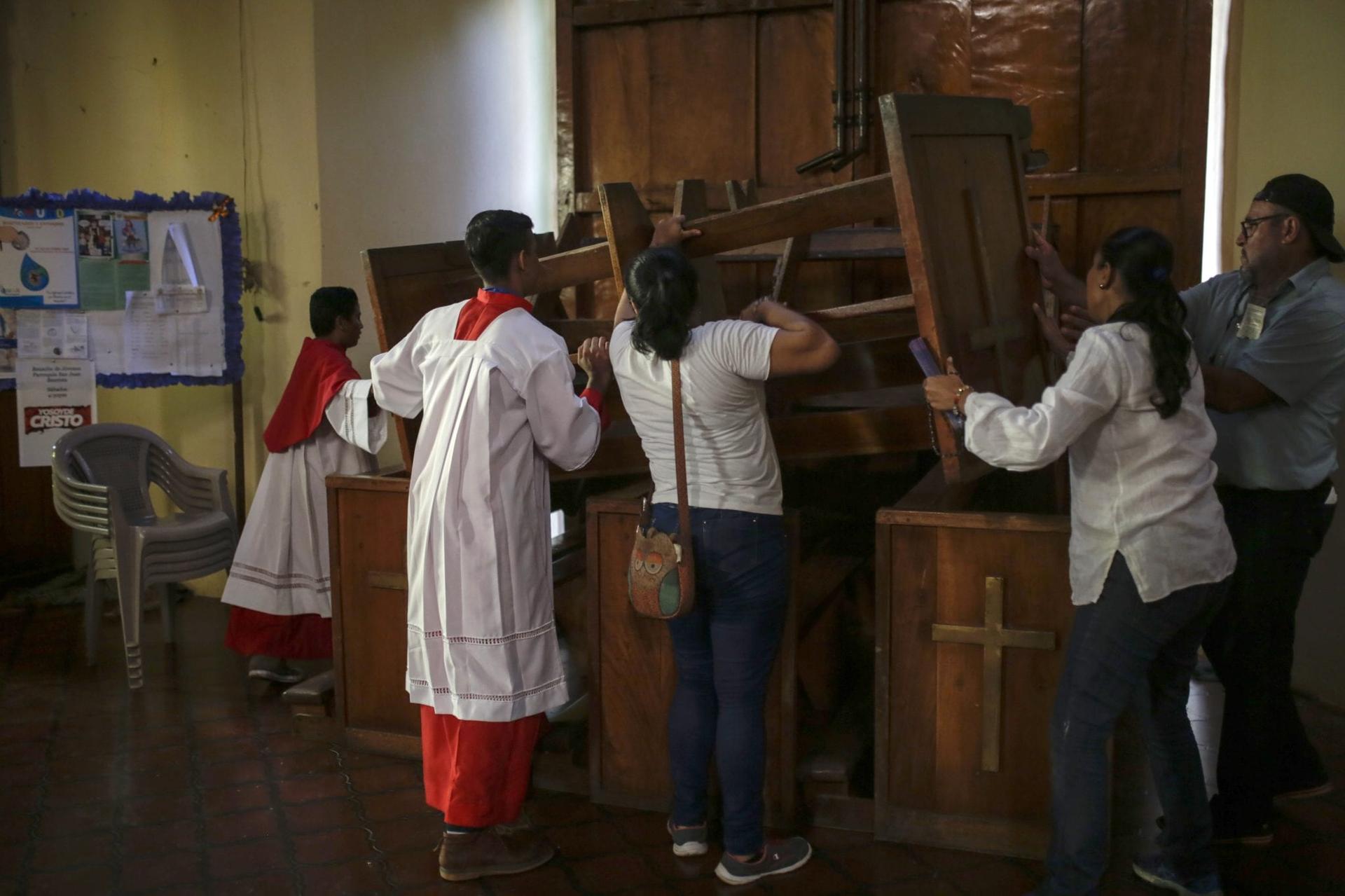Persecution of Christians, particularly the Catholic Church, is on the rise in Nicaragua, according to the United States’ Commission for International Religious Freedom (USCIRF), which says the government of President Daniel Ortega has accused local bishops of staging a coup to bring him down.
When protests against the government broke out in April 2018, the authorities used the military and armed militia, who fired into the crowds. The wounded often found refuge in the Catholic churches that opened their doors and became field hospitals for the wounded.
The bishops, at Ortega’s request, attempted to mediate a national dialogue between protesters and the government, but when the initiative failed, the prelates were blamed and accused of leading the opposition. As a result of civil conflict, hundreds were killed, thousands imprisoned and tens of thousands forced into exile.
“Many of the same religious freedom violations and abuses committed by the Ortega regime and its supporters against the Church and its followers in the wake of the 2018 protests continued into 2019,” says State Department’s 2019 International Religious Freedom Report released earlier this week. “These abuses include the intimidation and harassment of worshippers and religious leaders and the violent targeting of churches.”

As the report notes, the there are ample examples of harassment against bishops, including Bishop Abelardo Mata Guevara, president of the Nicaraguan bishops’ conference, who reported he and seven priests in his diocese have received death threats.
Similarly, Managua’s auxiliary Bishop Silvio Jose Baez left the country at the request of Pope Francis, who feared for the prelate’s life.
RELATED: Bishop in exile says Nicaragua faces two crises: Coronavirus and Ortega
According to USCIRF commissioner James W. Carr, the threats against religious freedom in Nicaragua “remain troubling.”
In a video posted on the official Twitter account of USCIRF on Friday, Carr said that in 2019 the government of Ortega “targeted religious institutions, most notably the Catholic Church, with attacks on clergy, worshipers and Church property.”
“In our 2020 annual report, we had recommended the imposition of targeted sanctions on Nicaraguan government agencies and officials responsible for severe violations of religious freedom,” he said. “The Ortega regime targeted Catholic priests with arbitrary arrests, death threats on social media, violent attacks and defamatory accusations. Police stood by as paramilitary and supporters of the regime besieged, desecrated, assaulted and threatened churches in many cities around the country.”
“There are many ways the government can encourage Nicaragua to ensure its citizens the basic human right of freedom of religion and belief,” Carr says.
USCIRF is an independent, bipartisan federal government entity that monitors, analyzes, and reports on threats to religious freedom. It was created by the 1998 International Religious Freedom Act (IRFA) that monitors the universal right to freedom of religion or belief abroad.
Nicaragua is only one of two Latin American countries on the commission’s list of worst violators, together with Communist-led Cuba.
Other countries listed in the report as not having religious freedom include Afghanistan, Algeria, Bahrain, Burma, China, Central African Republic, Egypt, Nigeria, India, Iran, Iraq, North Korea, Pakistan, Turkey, Vietnam, Syria and Pakistan.
Speaking about Nicaragua, the report says Ortega has “inflamed tensions by denouncing the Church as ‘coup mongers,’ ‘terrorists,’ and ‘pedophiles’ and accusing priests of stockpiling weapons in their churches on behalf of protesters.”
“Many religious leaders in the country contend that the government is politicizing religion during a political and social crisis,” the report states. “The government has utilized religious language and sought to infiltrate parishes.”
RELATED: Nicaraguan Church found strength on ‘night Jesus was shot at’

Crux knows of several priests harassed by pro-government groups who allege people pretending to be anti-Ortega would ask priests and religious where they could buy bombs or to try to get them to publicly criticize the government.
Catholic and evangelical Protestant leaders who provided shelter and medical assistance to peaceful protesters during the 2018 civil revolt continue to be victims of government harassment, including slander and arbitrary investigations. In addition, political prisoners are denied religious services.
Since 2017, the administration of Donald Trump has sanctioned 20 some high-ranking government officials, relatives and allies of Ortega, including his wife and two of their children.
On May 22, the administration announced sanctions against the latest Nicaraguan officials, Gen. Julio César Avilés Castillo, commander of Nicaragua’s army, and Finance Minister Iván Acosta.
“This new action furthers United States policy to hold accountable those individuals and entities who are key enablers of Ortega’s misrule and who perpetrate serious human rights abuse and seek to silence pro-democracy voices in Nicaragua,” said Secretary of State Mike Pompeo.
Follow Inés San Martín on Twitter: @inesanma











